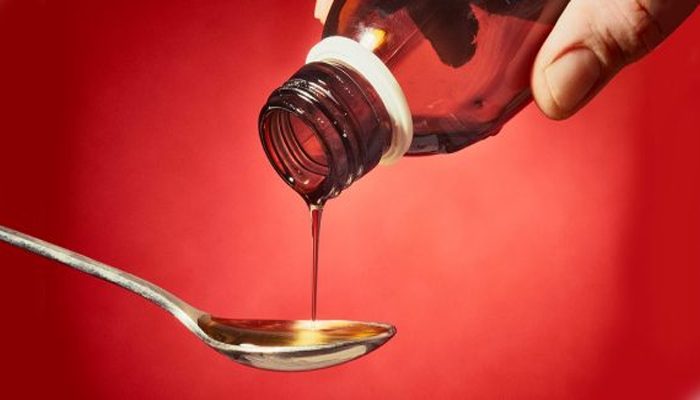Being in the thick of monsoons brings with it a welcome relief when it comes to temperatures.
What also follows however, are unpredictable bouts of cough, cold and fever as our body tries to grapple with the gloom. While reaching into your medicine box for your trusty cough syrup is usually the first recourse, the newly emerging information about this over-the-counter concoction, necessarily needs your attention.
353 of the 7087 batches tested by the Central Drugs Standard Control Organisation (CDSO) were flagged as NSQ, or ‘not of standard quality’. This data comes directly from an official report shared by the Ministry of Health and Family Welfare earlier this week. The primary issues with these batches were alarming traces of diethylene glycol (DEG), ethylene glycol (EG) essentially making the concoctions toxic. Other issues which bracketed these batches as NSQ included assay, microbial growth, pH, and volume. While contaminants of some kind or the other no longer come as a shock, the presence of DEG and EG is significantly more serious.
Get into the habit of reading labels
Cough syrups are arguably a no-brainer buy, always stocked in homes for those unexpected bouts of sore throats and sniffling. However, with the current scenario playing out the way it is, one is strongly advised to be extra mindful, even when it comes to basic over-the-counter medications.
Right off the bat, DEG is an industrial solvent. Though its texture makes it a ‘good fit’ for cough syrups, how would you feel about ingesting a compound which is also extensively used in antifreeze, brake fluid, wallpaper strippers, and fabric and dye manufacturing? Additionally, as per the (American) National Library of Medicine, ingestion of DEG is likely to lead to metabolic acidosis and renal injury. These diagnoses can either prove to be fatal or leave serious neuropathies and neurological effects.
EG also has a largely similar profile, being an industrial compound used in antifreeze, hydraulic brake fluids, some stamp pad inks, ballpoint pens, solvents, paints, plastics, films, and cosmetics, as established by the National Institute for Occupational Safety and Health (NIOSH). EG has a sweet taste, explaining why it is being used as a stand-in in cough syrups. The (American) Centers for Disease Control and Prevention asserts that consuming EG can prove to be rather detrimental for the central nervous system, heart and kidneys — ingesting enough can lead to death.
Read your labels thoroughly prior to purchase.
This cough syrup fiasco isn’t a first
CDSCO has pinpointed unsecured supply chains and not enough testing as the primary reasons behind this latest development. However, this isn’t the first time Indian cough syrups have made such alarming headlines. The World Health Organization (WHO) had issued a series of 5 alerts across 2022 and 2023, holding exported Indian cough syrups as accountable for about 140 children deaths the world over. Some of the countries this has primarily affected are Gambia — recording 66 deaths and Uzbekistan — recording 18 deaths.
This trend of sorts, if one can call it that, spells out a rather grim picture for India, who is among the key pharmaceutical players globally, also enjoying market domination when it comes to exports. For context, as per a Mint report, India meets about 40% of the generic drug demand in the US and provides a quarter of all medicines in the UK.
What is the government doing to fix this?
Considering the pharmaceutical industry in India is currently said to be valued at a staggering $50 billion, the cough syrup crisis spells out a rather grim picture.
The Modi government has put the burden of quality on the manufacturers, emphasising how a product must only be marketed once “satisfactory results” are achieved with testing ingredients. Additionally, samples from intermediate and finished batches are to be retained to enhance the testing process.
Cough syrup testing to be waived off?
Amid this fiasco, the CDSCO has received a 44 page presentation from pharma industry stakeholders about potentially waiving off the need to test cough syrups. In the case of pharma products being exported to USA, UK, Canada, EU, Japan, Australia, Singapore, Republic of Korea and Switzerland, the testing requirements may be waived off. An additional excerpt from the report reads, “if cough syrup is manufactured in a plant or section approved by the regulatory agencies of the listed countries for any product, such cough syrup may also be allowed to be exported to any country without testing at the prescribed laboratory”.
Checking labels, be it to look into the nutritional build up of a product or simply take stock of the ingredients used, is undoubtedly tedious. Developing this habit however, has now become the need of the hour more than ever. Stay safe!

